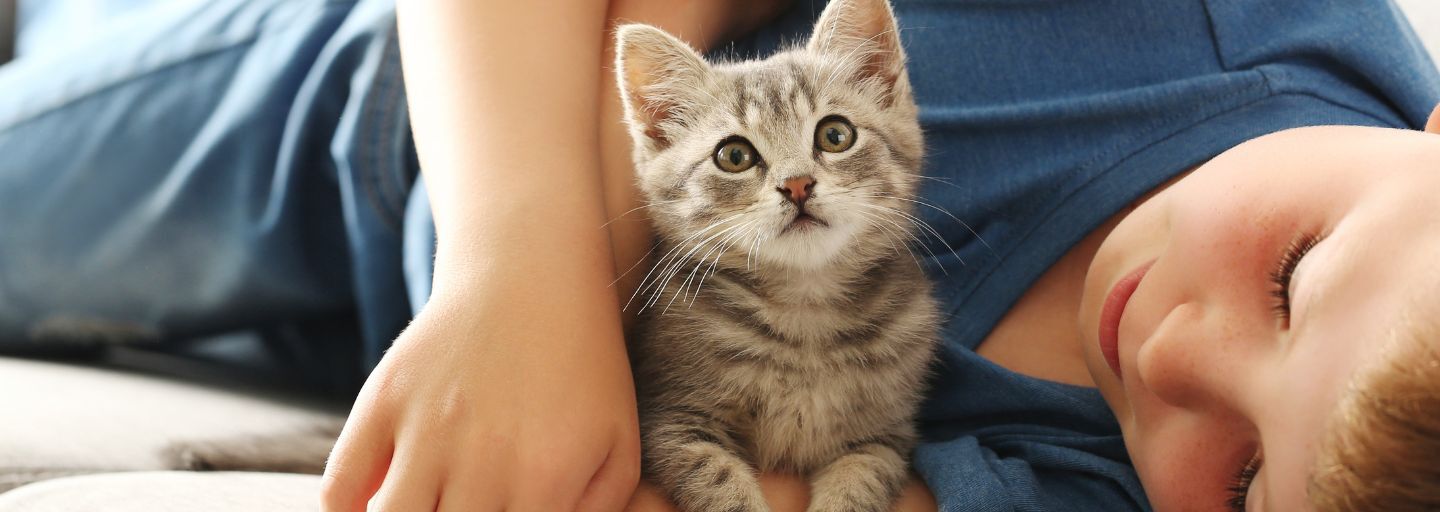Looking after kittens can seem a little daunting, especially if it's your first time. Here are eight tips to make life a little easier for you.
The more human contact the better:
Interact with kittens as soon as possible. Studies show that a litter of kittens born in a location inaccessible to humans will, as early as two to three weeks, hiss at humans. A litter of kittens from the same mother, if handled daily, will not react fearfully. Some research suggests that handling kittens each day during the first month of their lives may improve their learning ability.
Kittens tend to react more readily to humans when the mother cat is present. The belief is that she does not send alarming signals to her kittens and her presence reassures them.
Research suggests handling kittens very early in life accelerates their development. Siamese kittens handled for 20 minutes each day during their first 30 days of life opened their eyes earlier and emerged from their nesting box earlier than littermates not handled that way.
Continue gentle handling when your kitten comes to live with you, taking care to supervise young children with your cat.
Playing is important to your pet’s development:
Play helps introduce young kittens to their environment. When kittens are four to eight weeks of age, play becomes very important to them, but socialization to humans is also extremely important. Visit your kitten at this age, if possible. Frequent handling and petting of the young kitten can make it more responsive to her owner when she becomes an adult cat.
Introducing a young kitten to many people is important in socializing kittens to humans. This seems to lessen their fear of strangers as adult cats. Kittens should also be introduced to children, and children should be shown how to pet them. A kitten not socialized with children may be afraid of them after it has matured. Ensure that whoever you are acquiring your kitten from has been introducing them to people, always in a positive way.
For more information on toys that will provide your kitten with stimulation, click here.
Visit your vet asap:
Provide a healthy start for your kitten with regular visits to a vet. All kittens, even indoor cats, should be vaccinated to protect them from deadly diseases. Some viruses travel through the air or may be brought into the house on people's clothing or shoes. There is also a risk that an indoor cat may get outside or that a disease-carrying cat may wander into the yard or even get into the house.
Feed only a food formulated for a kitten's special nutritional needs:
A kitten's rapid growth and high energy requirements present a special nutritional need. Research shows that a kitten grows from infancy to young adulthood in approximately one year. During its first 20 weeks, a kitten can have a 2,000 percent increase over its birth weight. At 26 weeks of age, this growth level starts to level off.
This is why foods formulated to meet this growth pattern, such as PURINA ONE or Supercoat Kitten, are recommended for a kitten's first year. They provide the extra protein, calcium, phosphorus, and other nutrients kittens need for normal, healthy growth.
Establish a grooming routine:
The earlier you establish a grooming routine for you and your kitten, the better. This makes it easier for kittens to adjust. Longhaired cats should be groomed daily, while shorthaired cats only need it at least once or twice a week. Appropriate grooming equipment for longhairs and shorthairs is available at pet shops or at the TOTAL CARE stand in your supermarket.
Show your kitten the grooming tool, then gently stroke their body with it. Little and often is the best rule for grooming at this early age, and it generally helps to groom when your cat is relaxed.
Keep an eye out for signs of sickness:
The grooming routine should include a careful inspection of your cat’s health. You can also look out for any parasites such as fleas or ticks and skin disorders such as ringworm. Examine your kitten for lumps or skin lesions. If there are any, consult your vet.
Get your kitten used to being touched in every area of their body. This will make handling easier for everyone throughout the rest of your cat’s life.
Set ground rules for your kitten's behavior, and be consistent in enforcing them:
Setting ground rules helps prevent kittens from developing any unwanted habits. Once you have decided on a name for your kitten, enlist the cooperation of family members by calling the kitten only by that name and only use their name in a positive way.
Some misbehavior results from a kitten's desire to play. Provide diversions such as toys made for kittens (look for this information on the product label), a scratching post, box, and a crumpled piece of paper or a golf ball. Avoid rough play with your kitten which encourages scratching and/or biting. Pinpricks from tiny teeth and claws can become bites and scratches as a kitten matures.
Kittens are sensitive to the tone of voice. Try not to shout at your kitten. Praise them when they do play in the way that you wish them to.
Begin litter box training immediately!
Train your kitten to use a litter tray as early as possible.
Keep the pan in a secluded area of your house. Place your kitten in the litter box when she is most likely to use it, for example, after meals, long naps, first thing in the morning, and last thing at night. Consistency is key.
Do not allow your kitten freedom of the house until you are certain she is using her litter tray regularly. It’s also important to keep the litter box clean. Many cats will not use soiled litter. A sieve or scoop designed for cleaning cat litter is available at pet supply stores and departments. When you change the litter, wash the pan with soap and warm water. Do not use strong disinfectants that aren’t specifically designed for cats. For sanitary purposes, wash your hands thoroughly after cleaning the litter pan.
For more information on litter and management, check out our TIDY CATS and TOTAL CARE range.







